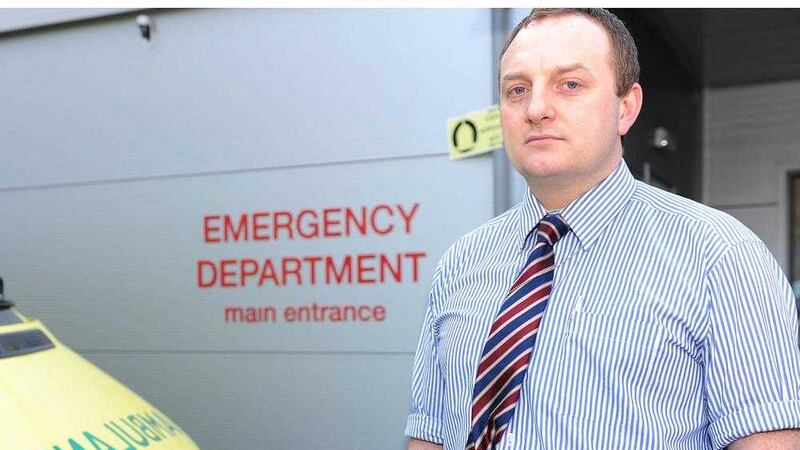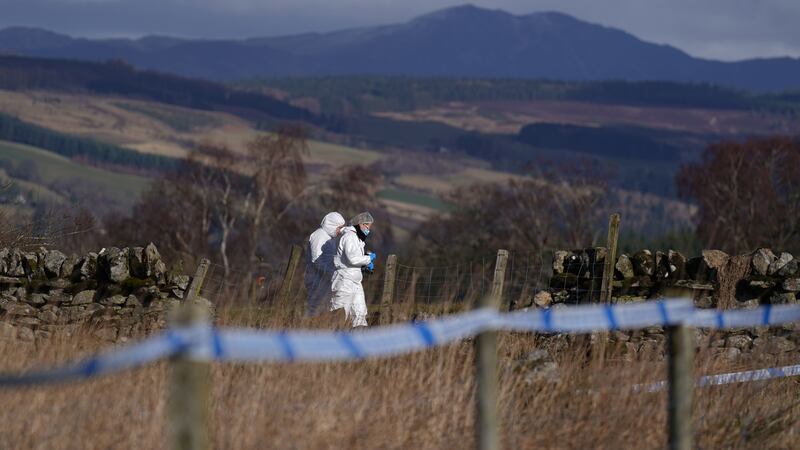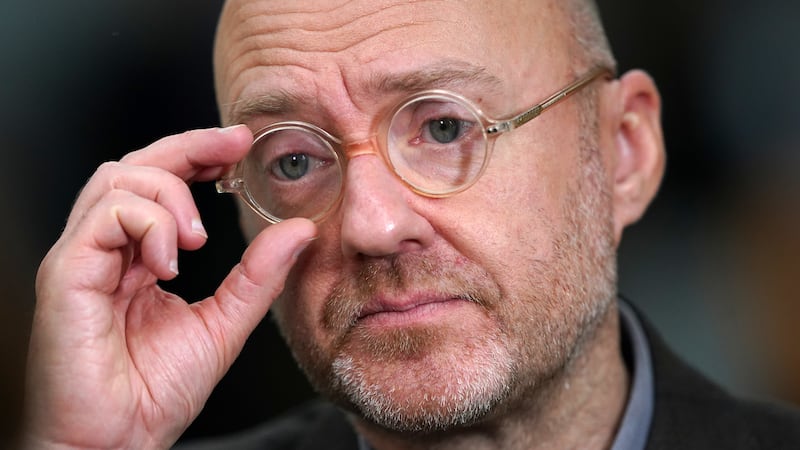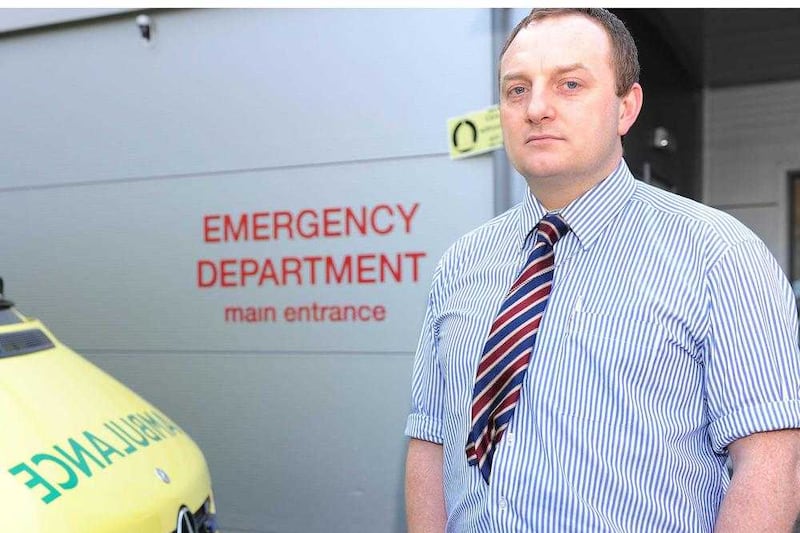EXCLUSIVE:
DEATH rates and waiting times for the sickest people attending A&E departments in Northern Ireland have been exposed for the first time - with a top doctor expressing "deep concern" at the findings.
Dr Russell McLaughlin, a A&E consultant at the Royal Victoria and co-author of a major new report on the care of life-threatening "trauma" cases - such as car crashes - has called for an overhaul of the system after it emerged there is a 25 per cent death rate.
The senior medic also hit out at the "wholly unacceptable" waiting times for those requiring urgent surgery and ICU beds, with one seriously ill patient enduring a 17-hour delay for life-saving care.
While the sample of patients used for their detailed research in the north's first ever trauma audit was small, Dr McLaughlin said the findings were significant and the most reliable to date.
In England, results from a national audit last year show an increase in the number of patients who would have died from severe injuries before the introduction of a "trauma network" in 2012.
These hospitals are developed by doctors, nurses and paramedics to ensure the patient receives the best possible care from the scene of the accident through to their rehabilitation at home.
Dr McLaughlin said it was his "personal opinion" that death rates in emergency care could be significantly reduced in the north to "below 15 per cent" through the introduction of similar networks, with the Royal Victoria hospital as the dedicated trauma centre.
He referred to a major study in Victoria, Australia - where the profile of seriously injured patients was the same as identified in the Northern Ireland research, mainly car crash victims and patients who fell from a height - in which the introduction of a dedicated trauma system led to the death rate reducing from 15 per cent to 11 per cent.
"If we were to carry out a larger piece of work and it still showed a mortality rate of 25 per cent for seriously injured patients in Northern Ireland that would be deeply concerning...having read published papers on this we know the true rate in other countries is 15 per cent," Dr McLaughlin told the Irish News.
"Our study showed that the average waiting time for seriously injured patients is four hours, while one patient waited 17 hours. These patients would be waiting for definitive care, ie a specialist bed in the intensive care unit or surgery.
"Those waiting times need to viewed in the context of the 'golden hour' or even the 'platinum 15 minutes', when it is thought that a lot of very key decisions need to be made within the first 15 minutes after injury. Our waiting times in this context are wholly unacceptable and symptomatic of the challenges that are in wider emergency care system.
"I know a number of people who have worked out in Afghanistan and their times are measured in minutes and seconds. Your time (as a very ill patient) in the emergency department in accessing treatment should be minutes - not hours."
Dr McLaughlin, who chaired the Northern Ireland Trauma Audit report, said the research was the first ever to probe care and outcomes for the sickest people attending the north's nine casualty departments.
Similar data has been collected in England, Wales and the Republic for the past 25 years and fed into a system to form trauma networks.
Patients cases are continuously audited to improve survival rates and slash death rates.
Professor Tim Coats, chair of the Trauma Audit and Research Network (TARN) in England said: "The injured are now treated by the right clinicians, in the right hospitals, as quickly as possible.
"Our patients now receive much more rapid care from specialist trauma teams who can identify life-threatening injuries much quicker, access key tests such as CT scans faster and perform life-saving operations earlier."
Dr McLaughlin, who spent five years trying to get the north's audit off the ground, said a similar service is "urgently" required for the north.
"Northern Ireland needs a major trauma network that is established, properly resourced and needs it as a matter of urgency. My opinion is our outcomes and mortality rates from trauma will significantly improve once a properly resourced network is up and running. The evidence from others models is that is a reproducable effect.
"In practice, you would have a designated major trauma centre - such as the Royal Victoria hospital - and you have seriously injured patients brought directly here for definitive care and then moved onto a rehabilitation centre afterwards. The whole process is continuously audited and improved.
"This isn’t an Emergency Department story, it is a trauma story."
The medic said the collection of information in hospital emergency settings was "routine" across the UK, parts of Europe and the United States.
When asked why Northern Ireland had failed to follow the lead of their counterparts, Dr McLaughlin said: "My personal view is that it's an historical thing. Whenever we were at the height of the Troubles, I get the impression we were actually very good at trauma care. I think what has happened we have essentially rested on our laurels for so long now that we have fallen behind in terms of how we measure trauma. We haven't been measuring our outcomes at all," he added.
"What has brought trauma to fore in UK and US is conflicts in Iraq and Afghanistan. It has been shown time and time again that timely, effective care in a well-run system saves lives. The first step in developing a system is measuring your baseline. This is what we need to do here."



